Posted on September 26, 2017
Kniefalling in the NFL
Yesterday, I wrote about how ridiculous it is for people to be offended over other people offended – and I stand by that. Taking offense to offense is just some next level Inception type shit, but without all the cool zero gravity hallway fights. It’s dumb, and you should stop doing that. Assuming you’re one of the people who’s doing it, that is. If you’re not one of the ones doing it, keep right on doing everything you’re not doing. Or something. I’m confused now.
See? INCEPTION.
Today, I want to talk about the act of kneeling as a form of protest. Whether or not you agree with the reasons behind the NFL kneeling isn’t part of this. I just want to talk about what’s actually happening when people kneel during the national anthem, because a whole lot of people out there are screaming that it doesn’t accomplish anything, and that it means things it doesn’t mean.
Keep in mind, these are usually the same people who love to tell other people how they should express their discontent. If they mass together in an open protest, they should get a job because they’re obviously not working like Good People are. Which is nonsense. If they block traffic to show the disparity between an inconvenience and actual oppression, they’re told they’re being a nuisance and just looking for attention. If they riot over an injustice, they’re called thugs, which is around about the time white people start quoting Martin Luther King, Jr. and telling black people that, if they want to protest, they should do it peacefully.
And then you have people kneeling during the national anthem at football games. I can’t think of a more peaceful – and respectful (more on that in a minute) – form of protest than that.
Here’s why.
First up – and I shouldn’t even have to say this – no one is disrespecting the flag or the national anthem. They’re not even disrespecting the country. They’re showing enormous respect by simply kneeling – traditionally, a humble act of reverence – and looking at the flag while our national anthem plays. They’re not dishonoring our country at all. They’re actually doing the exact opposite.
When people kneel during the anthem, they’re respecting everything about what makes our country great – while quietly and nobly expressing something that goes beyond words. They’re showing that they love what our country could be and should be – what it is at its best, when fully realizing the ideals being sung about in the anthem – while, simultaneously, calling attention to just how far from those ideals we are right now.
After my last essay on this subject, a reader in Germany contacted me, and shared the story of a German Chancellor named Willy Brandt. Back in 1970, he did something shocking and controversial that many in his country objected to and were offended by. It happened when Brandt visited Poland to sign the Treaty of Warsaw between West Germany and the People’s Republic of Poland. Signed by Brandt and Prime Minister Józef Cyrankiewicz on December 7, 1970, the treaty between the two countries committed both sides to nonviolence and an acceptance of the Oder-Neisse Line – the border imposed on Germany by the Allied powers after WWII, at the Potsdam Conference.
To translate all that from boring Historyspeak™, the treaty was a big deal because, while East Germany had already accepted the border way back in 1950, the Conservatives in West Germany wanted no part of any of it. They considered Brandt’s signing of the Warsaw Treaty in 1970 a betrayal of the country, of its ideals and its destiny, and they were pretty pissed about the whole thing.
But that’s not the controversial part. Okay, it is, and he took plenty of crap for it, but it’s not the controversial part I want to talk about right now. It’s this one, which was arguably even more outrageous and offensive to many German people.
On the same day he signed the treaty, Willy Brandt visited a monument commemorating the Warsaw Ghetto Uprising – an act of Jewish resistance in German-occupied Poland opposing the Nazi’s final effort to relocate the ghetto to Treblinka in 1943. Around 13,000 Jewish people died in the uprising, with many being burned alive after SS-Brigadeführer Jürgen Stroop ordered the entire ghetto burned to the ground, block by block. It was a horrible thing, and it is one of many wounds the people of Poland will never forget.
So, not only did Brandt travel to Poland to sign a treaty many people in his country opposed – he also visited a memorial to a tragic event Germany bore complete responsibility for, which is something the Conservatives back in his home country would’ve preferred to ignore. (Kind of like how the alt-right of America likes to gloss over the worst parts of our own history…)
Then, he did the unthinkable: he laid down a wreath and, moved by the moment and the place, and everything it represented, he fell to his knees, and knelt. Spontaneously. For 30 seconds.
No one saw it coming.
The German Chancellor – after negotiating a treaty that people in his own country strongly opposed – not only did the right thing by signing it in defiance of the loud cries of his angry countrymen, but he took it a step further and actually knelt before the memorial. That single act of defiance against the chorus of opposition back home, and a humbling apology to the Polish people came to be known as Kniefall von Warschau – or, Warsaw Genuflection. It was an act of contrition for, and an acceptance and acknowledgement of the terrible things Germany had done under the Nazi regime. While some in his country saw it as disrespectful and offensive, many others were forced to face their own part, however small, in the terrors their country had inflicted upon the world. Willy Brandt’s simple act of kneeling in that specific situation made people stop and think about another point of view, if only for a few minutes. And it changed them.
The German people now respect and admire the Kniefall, and see kneeling as a powerful expression one can use in a time when there are no words strong enough, or actions firm enough, to represent and encompass everything one needs to say.
Brandt himself summarized it best: “Under the weight of recent history, I did what people do when words fail them. In this way, I commemorated millions of murdered people.”
Apply that now to what we all saw this past weekend. Were not the players kneeling under the weight of recent history, and commemorating the deaths of countless people?
Eric Garner
Freddie Gray
Christian Taylor
Walter Scott
Natasha McKena
Michael Brown
Philando Castile
Trayvon Martin
Tamir Brown – 12 years old
The list goes on. And on. And on.
You don’t need to believe that every death was justified to acknowledge that there’s a problem. Whether you believe it’s bad cops in a systemically racist institution of law enforcement, or a failure of the education system or society to provide opportunity to people of color that leads to crime – there’s obviously a problem. Maybe we just have too many bad cops, or maybe we just have too many criminals. Maybe it’s both. We have to face that, acknowledge it, and come to terms with all the different forces at play before we can fix it.
When people kneel during the national anthem, they’re not asking you to change the world. They’re not even asking you to change yourself. They’re simply wanting you to stop and think. They’re asking you to pause and see things from another perspective, if for only a moment – those few short minutes while the national anthem plays, and everyone’s gaze turns to our flag – and everything it’s supposed to represent. For everyone.
It’s not an act of defiance. It’s an act of contrition – remorse for what’s become of our country – and a silent plea that we all do something about it. It’s not meant to offend. It’s meant to inspire.
It’s what people do when words fail them.
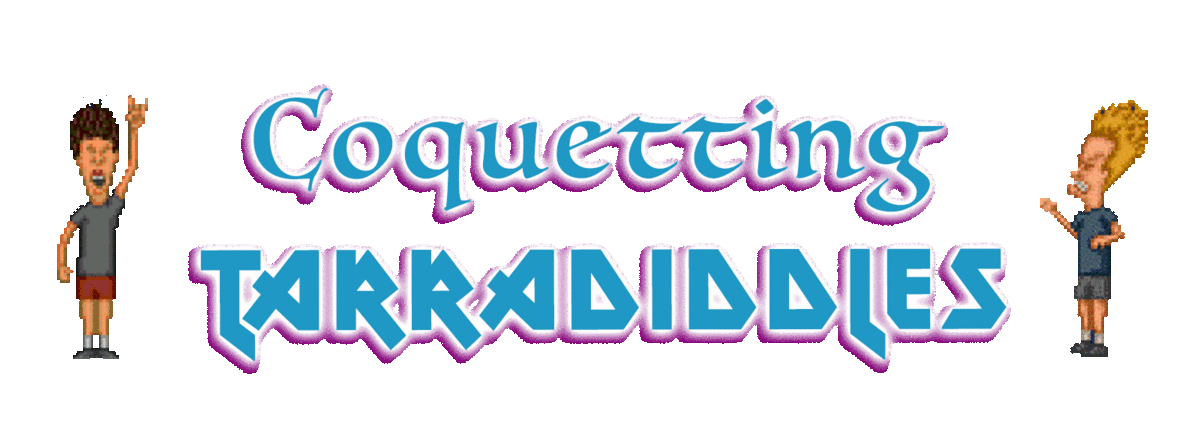
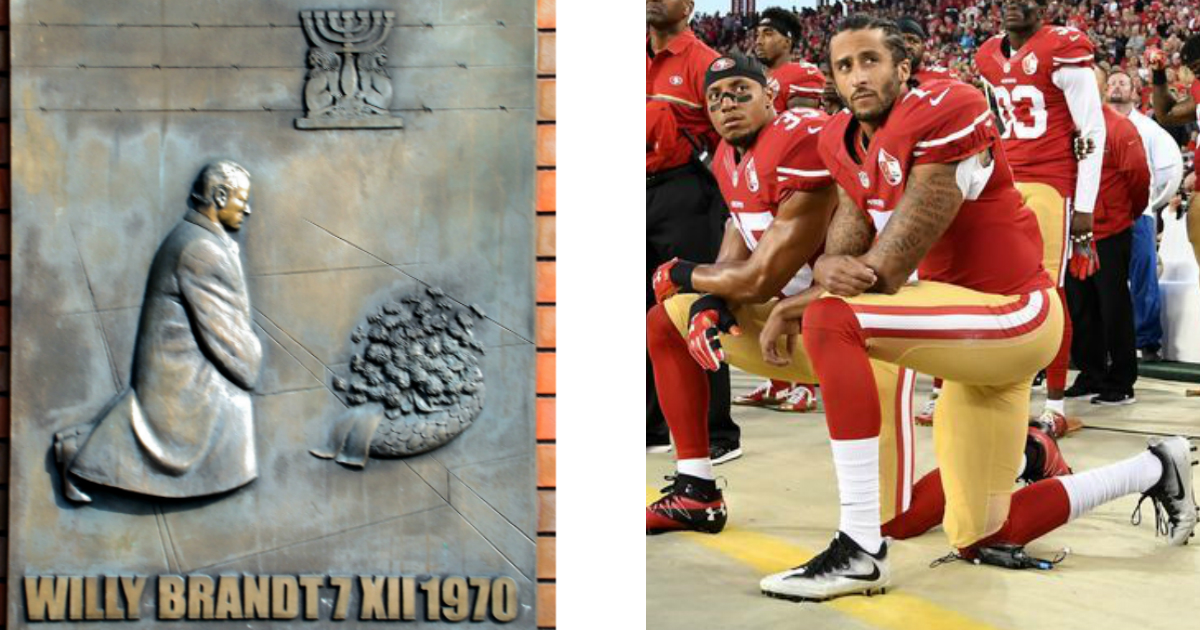
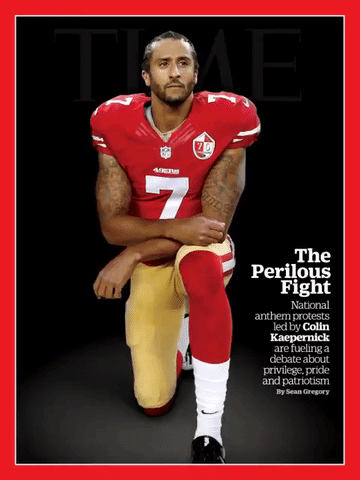
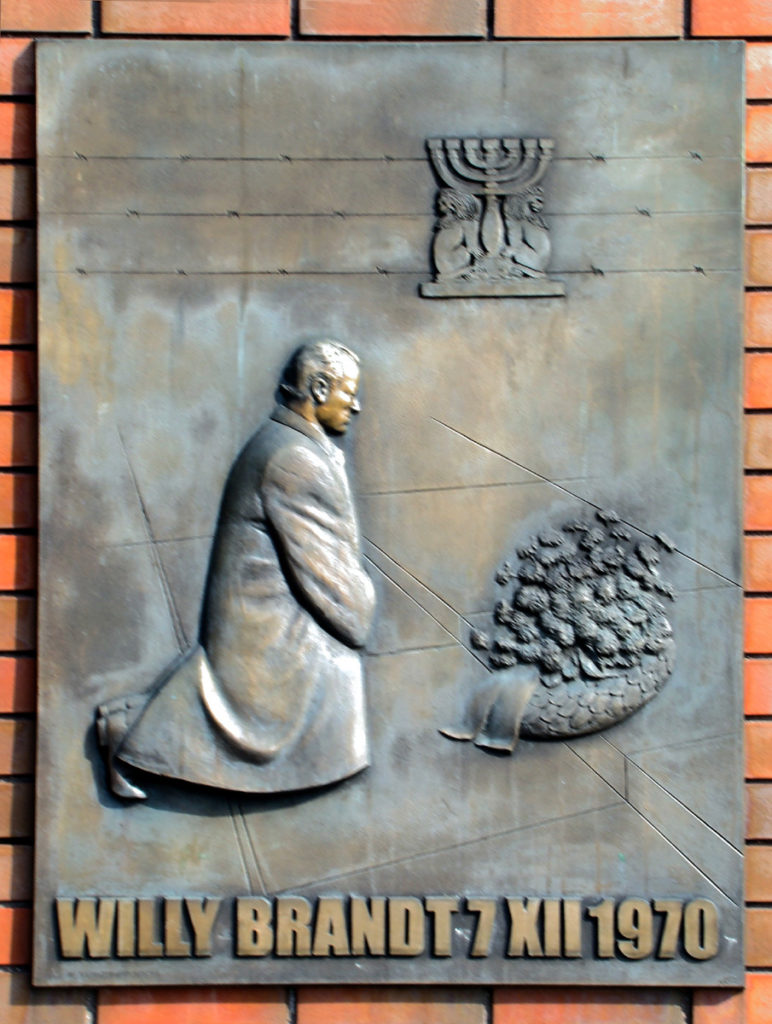
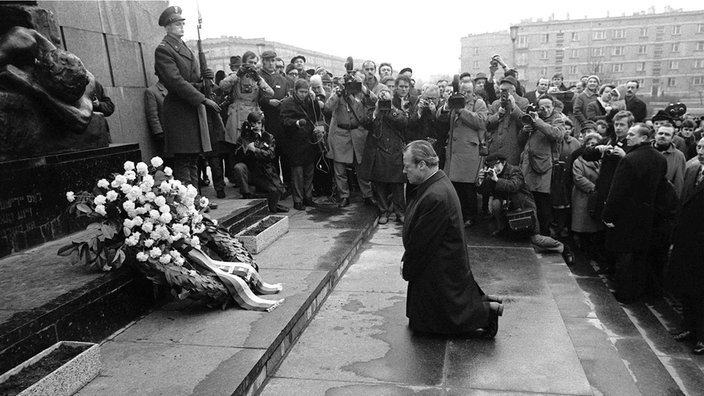

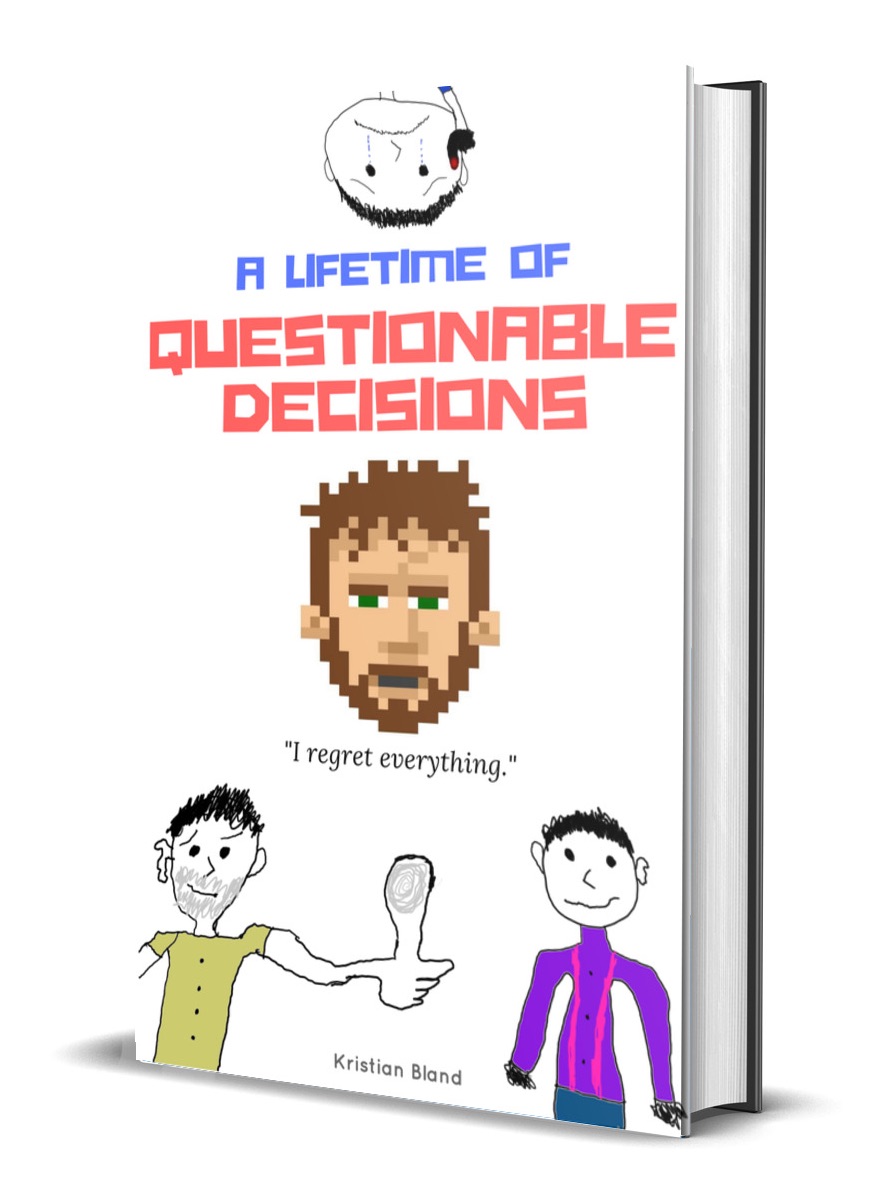




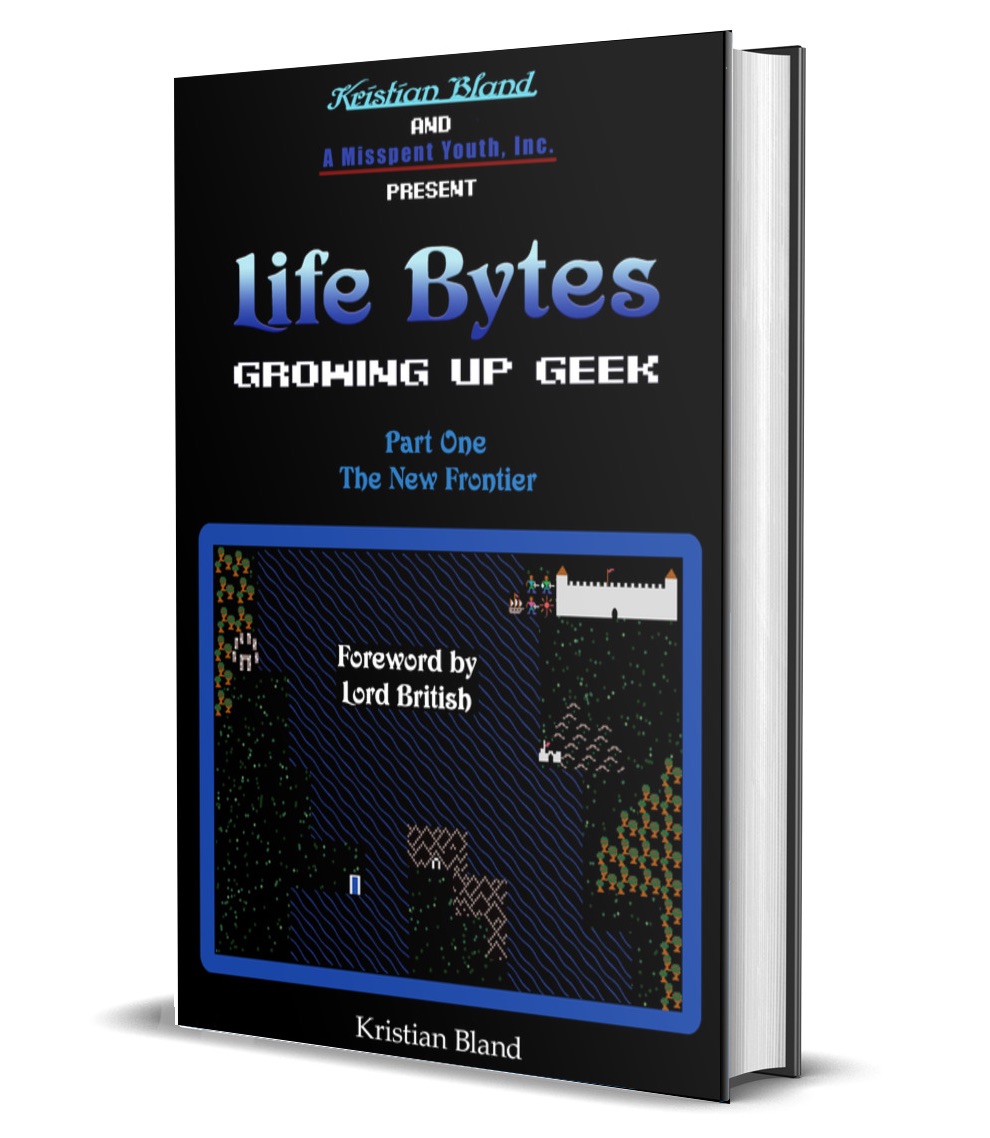
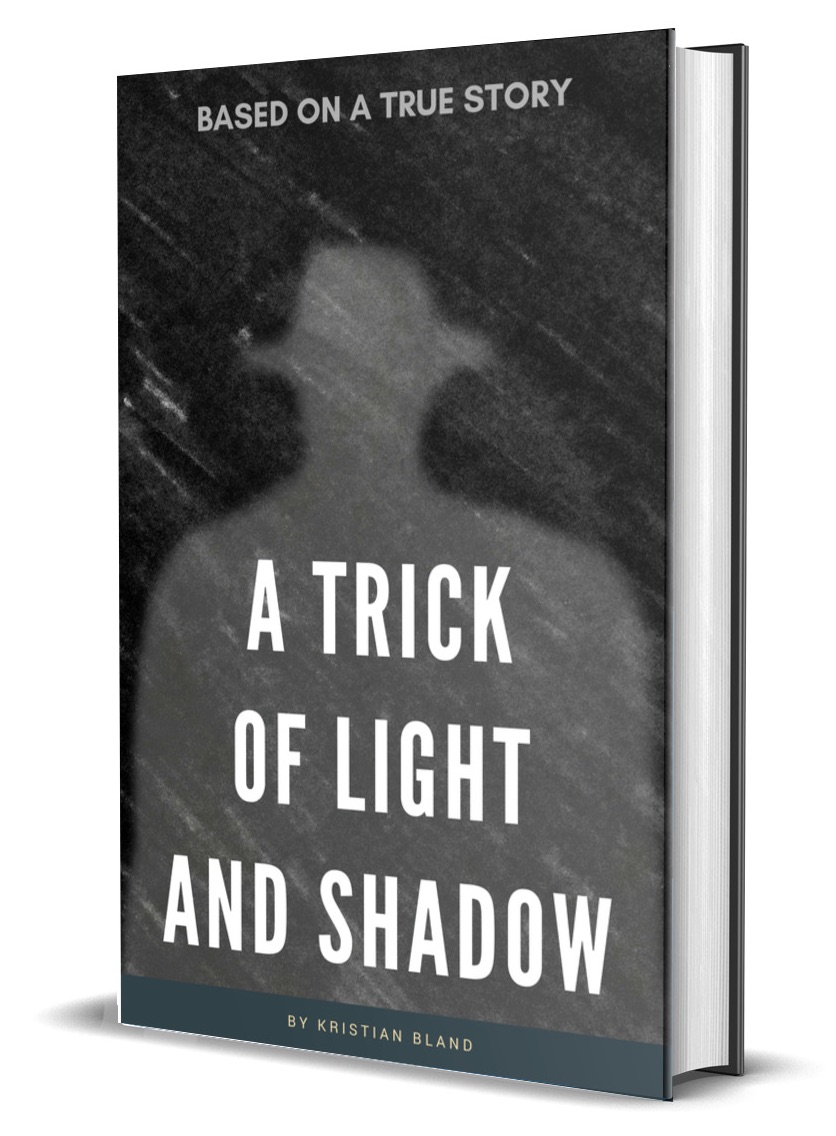
You must be logged in to post a comment.